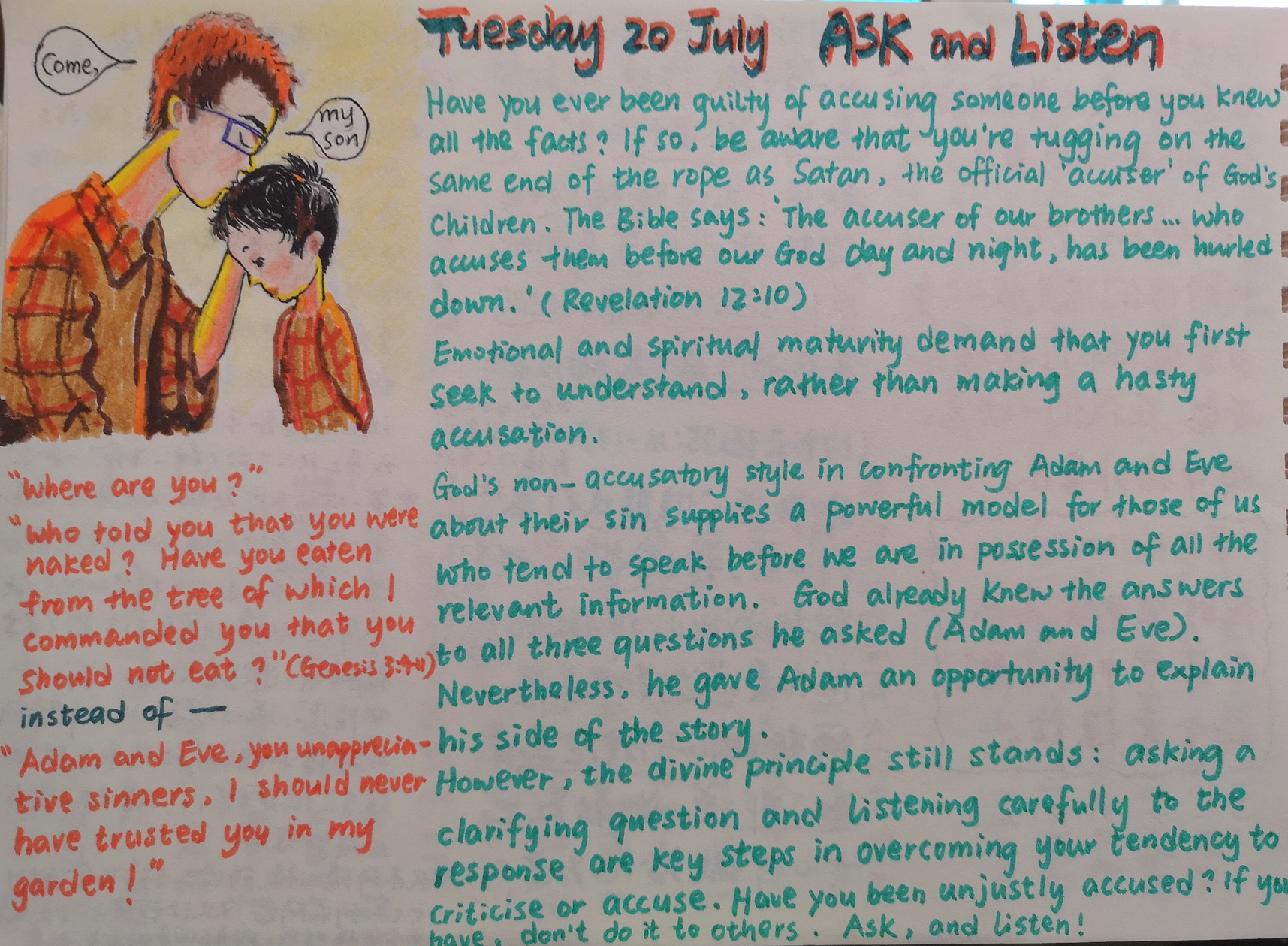

 字體:小 中 大
字體:小 中 大 |
|
|
|
| 2021/07/20 18:38:38瀏覽1373|回應1|推薦14 | |
|
Ask and listen Tuesday 20th July 2021
The accuser of our brothers...has been hurled down(控告弟兄的已經被摔下去). Revelation 12:10 NIV
Have you ever been guilty of accusing someone before you knew all the facts(沒弄清事實冤枉別人而內咎)? If so, be aware that you’re tugging on the same end of the rope as Satan(小心你拔河拉到撒旦那邊的繩子), the official accuser (官方控告人)of God’s children. The Bible says: The accuser of our brothers...who accuses them before our God day and night(晝夜在神面前控告), has been hurled down (Revelation 12:10). Emotional and spiritual maturity demand that you first seek to understand, rather than making a hasty accusation(興師問罪). Look at the example God gave us in the garden of Eden. He could easily have said, "Adam and Eve, you unappreciative (不識抬舉) sinners, I should never have trusted (託付) you in my garden!" God’s non-accusatory (不非難) style in confronting Adam and Eve about their sin supplies a powerful model for those of us who tend to speak before we’re in possession of all the relevant information (掌握片面消息就衝口開講). The Bible says: The Lord God called to Adam..."Where are you?" So he said, "I heard your voice in the garden, and I was afraid because I was naked; and I hid myself." And he said, "Who told you that you were naked? Have you eaten from the tree of which I commanded you that you should not eat" (Genesis 3:9-11)? Notice God already knew the answers to all three questions he asked(已知三個問題的答案). Nevertheless, he gave Adam an opportunity to explain his side of the story(給亞當解釋己方原委的機會). And in Adam’s case, he couldn’t (亞當失策). However, the divine principle still stands(屬天的原則仍然有效): asking a clarifying question (查詢明辨) and listening carefully (仔細傾聽) to the response are key steps in overcoming your tendency to criticise or accuse(制約妄自批評譴責的主要步驟). Have you ever been unjustly accused(遭人錯怪)? If you have, don’t do it to others. Ask, and listen!
原文: The Word for Today, 原圖:Feifei筆記 |
|
| ( 心情隨筆|心情日記 ) |









